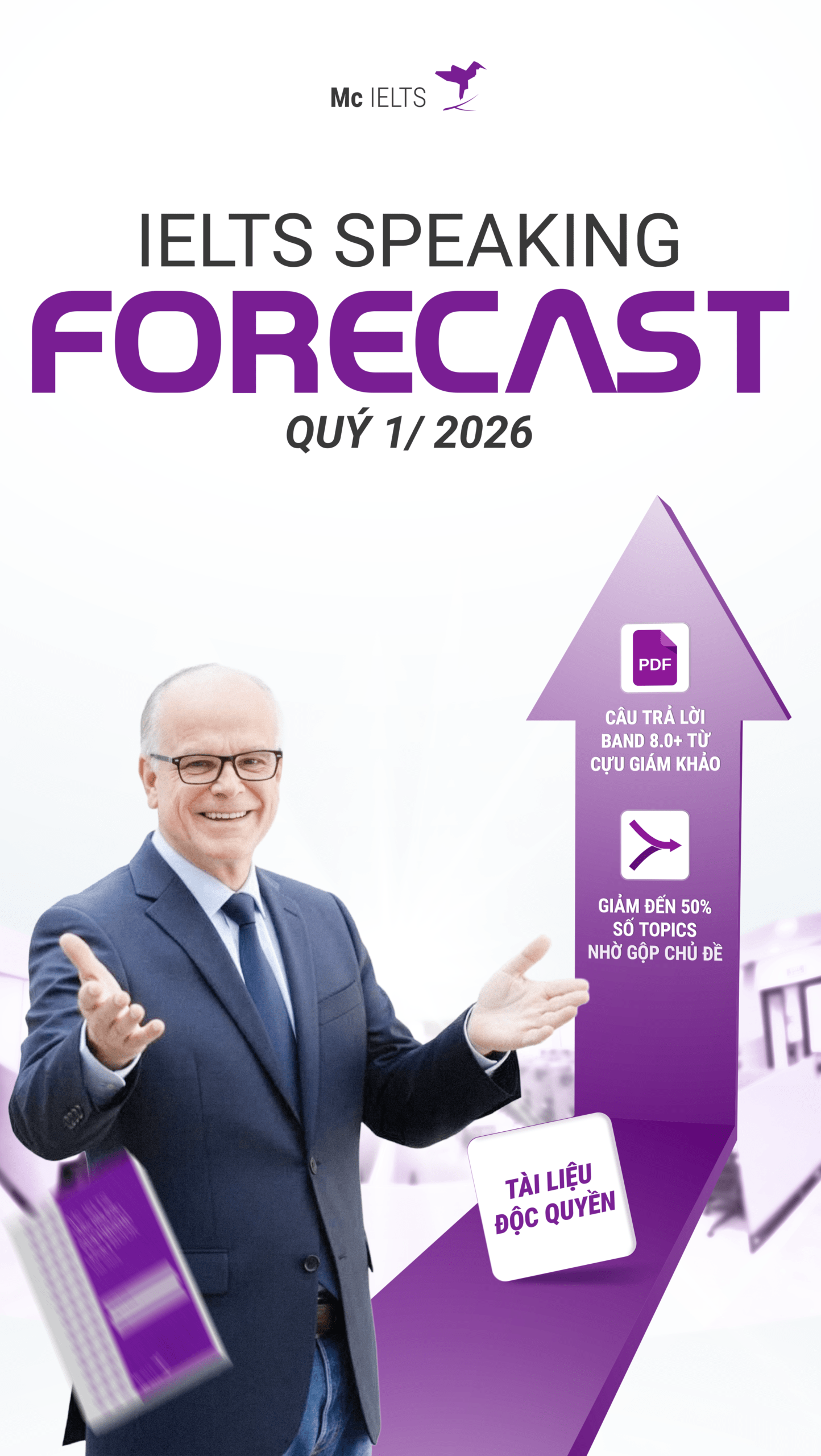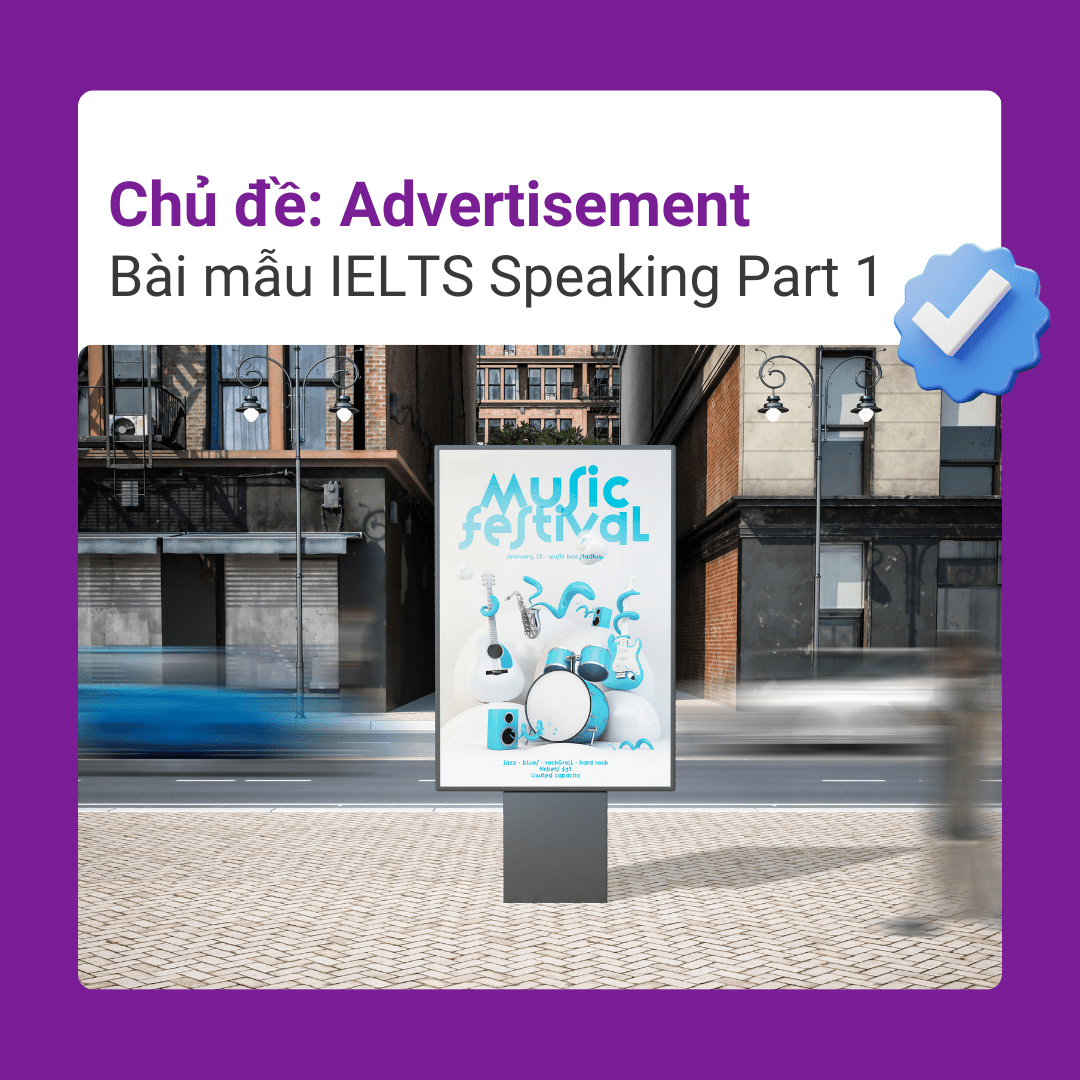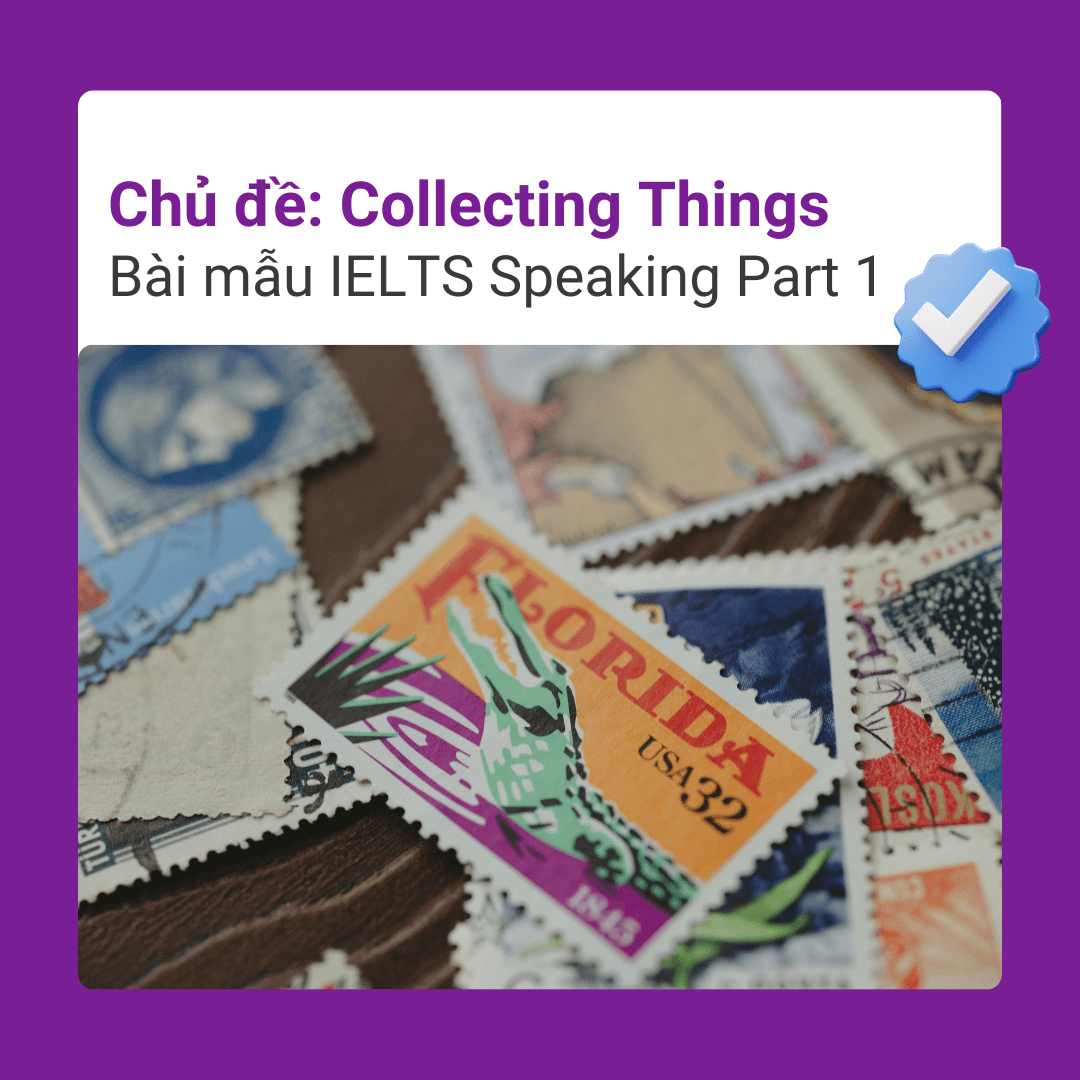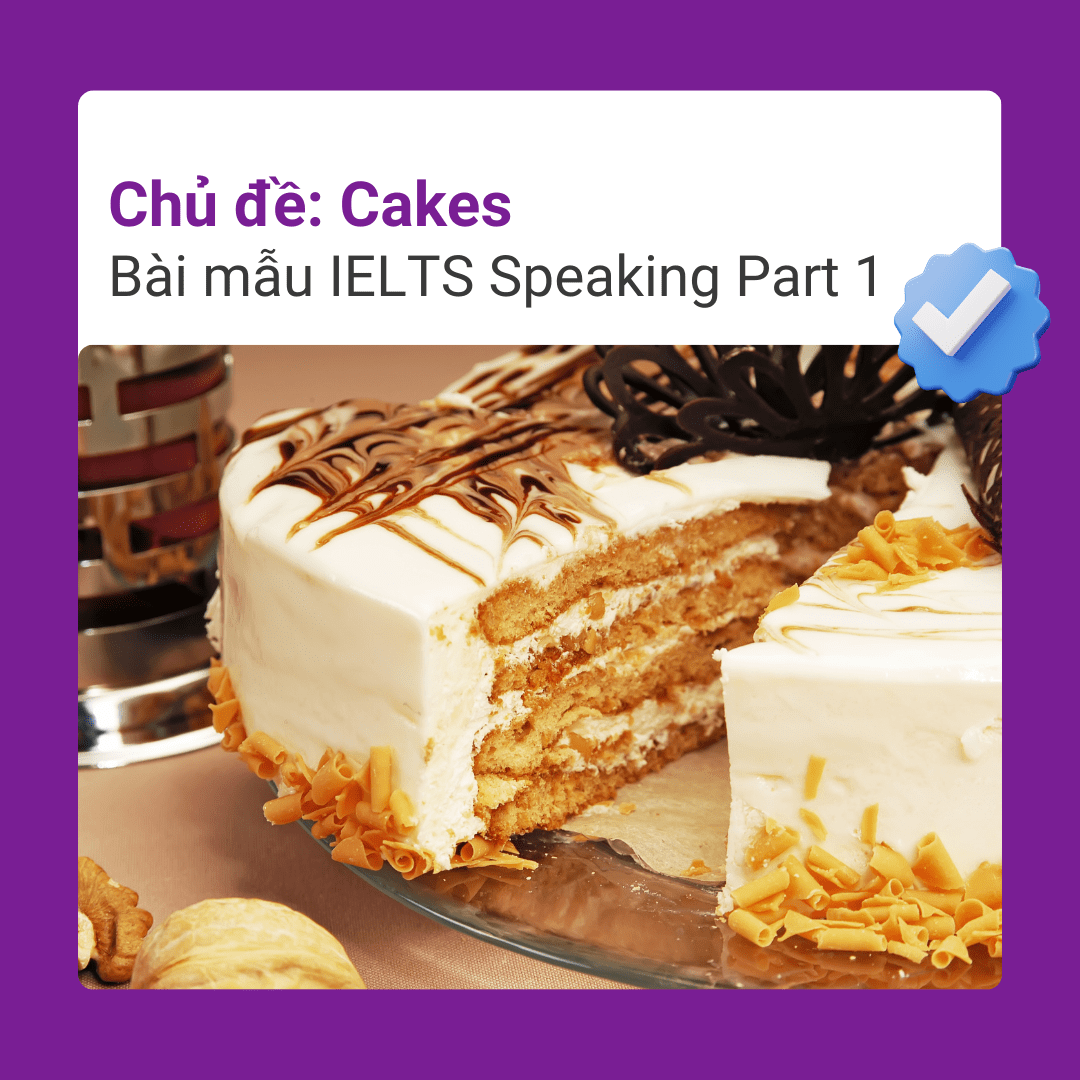IELTS Speaking Part 1 Topic: Television
 13/12/2023
13/12/2023
 Tác giả : MC IELTS
Tác giả : MC IELTS
IELTS Speaking Part 1: Topic Television
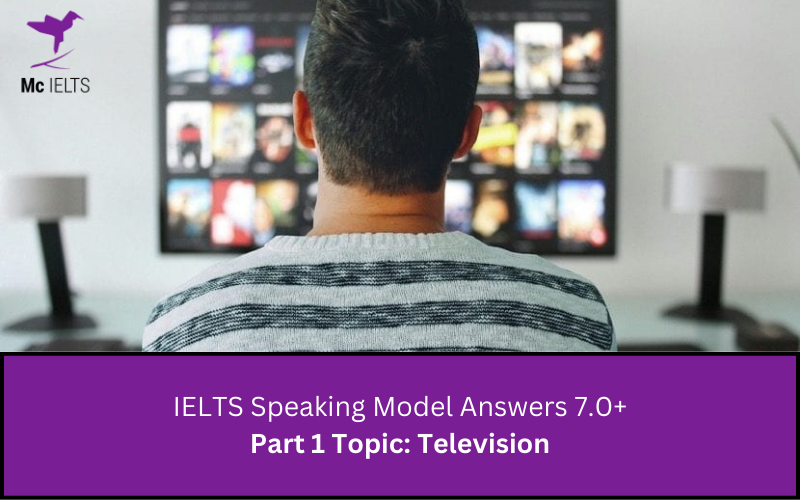
Topic Speaking Television cũng là IELTS Topic thường xuyên xuất hiện ở phần Speaking Part 1. Cùng Trung tâm tiếng Anh IELTS Mc IELTS tham khảo một số câu trả lời mẫu Band 7+ dưới đây nhé cả nhà.
Speaking Model Answers
1. Do you like watching television, and when do you usually do it?
I would not say that I am not fond of watching television at all, but it is really no longer one of the few activities I do for leisure at home every day. I continue to have the entire world in my pocket as long as a smartphone or a tablet is found within my reach. I most often watch television in the early morning, when the latest breaking news starts to be broadcast.
2. How much time do you spend on television?
Throughout my life, I have never spent over three hours on television each time I watch it. There is hardly ever a program, such as a single movie or an episode of a drama series, that lasts longer than two and a half hours. Even a mere 15 minutes would suffice me to sort both domestic and international news.
3. What types of TV program do you like watching?
In addition to news channels, I am a big fan of action fiction and situation comedies. The news keeps me updated on in what manner human societies are changing. No other television program would excite me more than a Hollywood blockbuster, whereas sitcoms teach me to develop a positive and optimistic personality by showing me how life is seen from the perspective of a humorous mind.
4. What types of TV program are popular in your country?
Similar to those in other parts of the world, television programs in Vietnam vary from children’s shows to live talk shows. Original Vietnamese channels broadcast contents that embody diverse traditional cultural values of our motherland.
5. Why do children like watching television?
To us adults, the television is a mere electronic device. To young children, nevertheless, it is a miraculous portal that exposes their innocent minds to a mixed world of realities and fictions, between which they are not yet able to differentiate. On the outside, they seem to be only looking at the screen, but most of us might easily forget the fact that their brains are working to comprehend the world they live within. The more time they spend on television, the bigger their curiosity about it grows.
Vocabulary
=> no longer: không còn
Eg: Alex no longer works for us.
=> as long as: miễn là
Eg: We are pleased to have you stay at our house as long as you like.
=> breaking news: tin nóng, tin đặc biệt
Eg: There is no breaking news at this hour.
=> broadcast: phát sóng, chiếu
Eg: Most of the programs are broadcast in English.
=> drama series: phim chính kịch dài tập
Eg: I am so obsessed with Korean drama series.
=> last (as a verb): kéo dài
Eg: I am positive that the rain would last long.
=> suffice: đủ để, đủ cho
Eg: A few examples will suffice to illustrate the point.
=> sort news: tra cứu, tìm kiếm tin tức
Eg: Modern technologies provide us with numerous methods of sorting news.
=> in addition to + (n)/V-ing: bên cạnh, ngoài ra
Eg: In addition to the thick fog, there was a heavy smell.
=> a big fan of: là một fan bự của cái gì đó (thích, say mê)
Eg: I had no idea she was a big fan of hip-hop dance.
=> action fiction: hành động viễn tưởng
Eg: Most parents believe action fiction stimulates violence in children.
=> sitcom (situation comedy): hài kịch tình huống
Eg: My favorite sitcom is about a bunch of friends at a bar.
=> manner: cách thức
Eg: The manner in which young children are spoken to varies, depending on who is present.
=> blockbuster: phim bom tấn
Eg: Their new film is going to be a real blockbuster.
=> optimistic: lạc quan
Eg: He is known for his optimistic can-do attitude.
=> humorous: khôi hài, dí dỏm
Eg: There was, they felt, one very humorous incident on the way.
=> similar to + (n): tương tự như, giống như
Eg: Your cats look very similar to mine.
=> live (as an adjective): trực tiếp trên truyền hình
Eg: Australia’s popular live TV comedy series are absolutely intriguing.
=> talk show: chương trình trò chuyện
Eg: She is the anchorwoman for a TV talk show.
=> embody: hiện thân, biểu hiện
Eg: Words embody thoughts and feelings.
=> mere: chỉ là, chỉ có
Eg: The mere thought of flying fills me with panic.
=> miraculous: kỳ diệu
Eg: She made a miraculous recovery from her injuries.
=> portal: cổng dẫn xuyên không gian và thời gian
Eg: Alchemiss is trying to close those portals to the hellish world.
=> expose: phơi bày, làm lộ ra
Eg: He does not wish to expose his fears and insecurity to anyone.
=> innocent: hồn nhiên, trong sáng, vô tư, vô tội
Eg: Many innocent civilians are killed during a war.
=> reality: hiện thực
Eg: Imagination is sometimes more vivid than reality.
=> fiction: thực tế ảo
Eg: His testimony is a complete fiction.
=> differentiate: nhận ra sự khác nhau, phân biệt
Eg: He has learned to differentiate between French and German wines.
=> seem: dường như
Eg: He seemed to enjoy her party.
=> comprehend: hiểu được
Eg: She failed to comprehend the seriousness of the situation.
=> : càng (như thế nào hơn) thì càng (ra làm sao hơn)
Eg: The harder we work, the better our results turn out.
- IELTS Speaking Part 1 Topic Hobbies
- IELTS Speaking Part 1 Sports
- Các lỗi sai ngớ ngẩn của thí sinh khi thi IELTS Speaking
Nhận lộ trình IELTS TỐI ƯU theo yêu cầu








